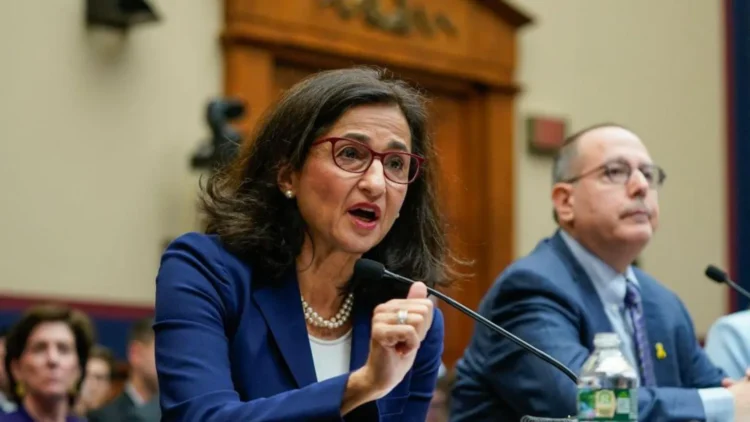Columbia University President Minouche Shafik has resigned just one year into her tenure, following intense campus protests and nationwide scrutiny over the university’s handling of demonstrations related to the Gaza conflict. Her departure comes only weeks before the autumn semester and makes her the third Ivy League president to step down due to controversies surrounding responses to Gaza war protests.
The crisis peaked in April when Shafik authorized the New York Police Department to intervene on campus, leading to the arrest of around 100 students occupying a university building. The decision marked the first mass arrest on Columbia’s campus since the Vietnam War protests, sparking further unrest at universities across the US and Canada.
In a message to students and faculty on Wednesday, Shafik acknowledged the “difficult period” marked by deep divisions within the community. She cited the toll on her family and the university’s need for new leadership to address upcoming challenges as reasons for her decision.
Katrina Armstrong, CEO of the Columbia University Irving Medical Center, will serve as interim president. In her resignation letter, Shafik expressed regret over the polarized atmosphere but defended her efforts to uphold academic values and ensure fairness. “It has been distressing to find myself, colleagues, and students subjected to threats and abuse,” she wrote.
Shafik, a distinguished Egyptian-born economist and former president of the London School of Economics, had previously faced scrutiny from Congress for her defense of Columbia’s approach to combating antisemitism amidst growing campus tensions.
Her resignation follows the departure of three deans last week, after revelations of text messages using antisemitic language. The exchanges were released by the Republican-led House Committee on Education and the Workforce, intensifying calls for accountability.
Columbia is one of several US universities grappling with heated protests and legal challenges as the Gaza conflict continues. Across the country, academic institutions are bracing for further unrest as the new academic year approaches.






























